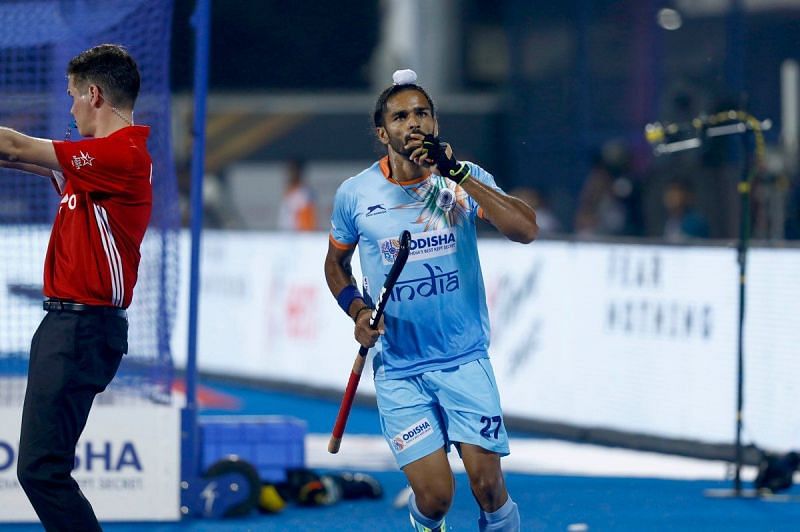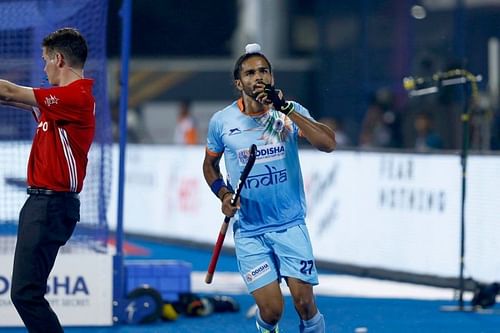
Hockey World Cup 2018: India vs South Africa- 3 reasons why India won the match

Harendra Singh's team has sounded a stern warning to the opposition by overcoming the opening-match jitters of the Hockey World Cup to record, what was in the end, a comprehensive win.
Much like Ric Charlesworth's great Australian teams of the past, the Indians have adopted a deliberate strategy of swarming the goalmouth in the opening minutes even before the opposition have had time to settle.
Implementing such a strategy is possible only when a team is able to maintain a solid structure to ward off possible counter attacks, and the midfield and defence have the ability to reposition themselves at a moment's notice based on the movement of the opposition players.
For a team which nurses the ambition to make it all the way to the top after a gap of 43 years, the PC's did not seem to come on perfectly, and the Indian think-tank needs to address the issue on a priority basis as Harendra Singh pointed out after the match.
"We will go back to the meeting room to see where we were lacking when we mis-stopped."
Yet, the Indians did manage to score from rebounds and the Indian coach admitted that it was the goals which counted, despite the fact that there were a few blemishes along the way.
"We scored the goals, no matter how we score on PCs. But I am happy they recovered and even scored from those opportunities."
The Indians face Belgium on Sunday, ahead of which we attempt to assess the three primary reasons why the Indians ended up on the winning side in the opener.
#3 Utilising Akashdeep as a link-man
Ramandeep Singh was India's man up front who, so very often, delivered probing passes, which split the defence and found an Indian striker positioned aptly at the goalmouth.
In the past, Akashdeep himself has benefited from these witty assists but ever since the Asian Champions Trophy at Muscat, the Indian team management has sought to make up for Ramandeep's absence by allowing Akashdeep to withdraw a bit and don the role of link-man instead.
After successfully trying out the ploy at Muscat, Harendra seems intent on utilizing the 23-year-old as an effective link-man as he revealed after the match.
"He (Akashdeep) has very good peripheral vision. He is lethal as a link-man. We have three strikers floating inside the circle."
"If you go back 15 years, Dhanraj changed his role from the 2002 World Cup. He became a playmaker and Deepak and Proabhjot scored. I am very happy with Akash. He is taking the lead. In every department, we have a leader. I hope we continue that way throughout the tournament."
It was Mandeep who lurked around the periphery of the woodwork while the immensely-talented Akashdeep displayed that he has now matured and is willing to take on more responsibility to deliver the effective through passes to his fellow strikers.
Neither Ramandeep nor Sunil are at Bhubaneswar and Akashdeep will need to continue to combine effectively and seamlessly with Dilpreet, Lalit, Mandeep, and Lalit against the more formidable sides in the competition.